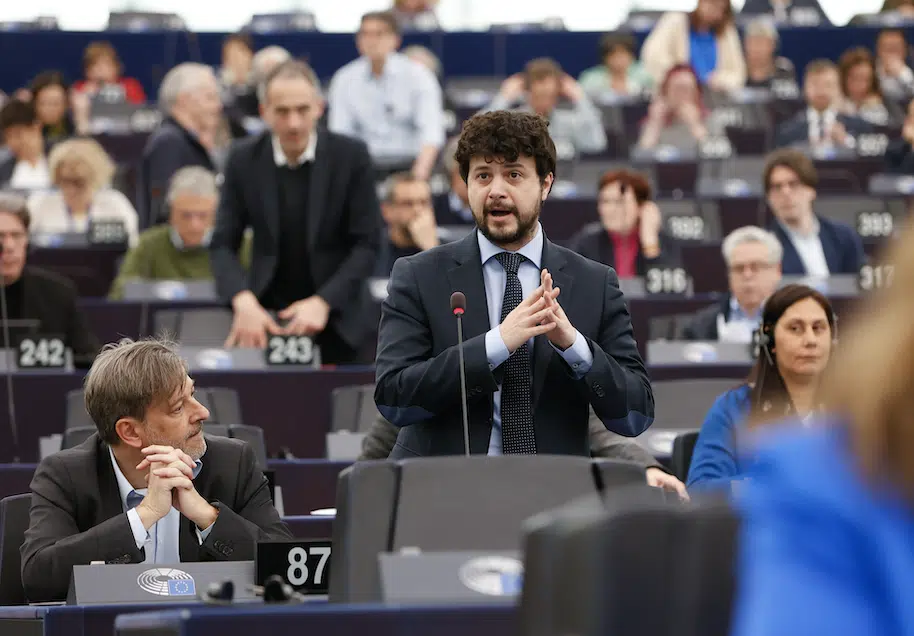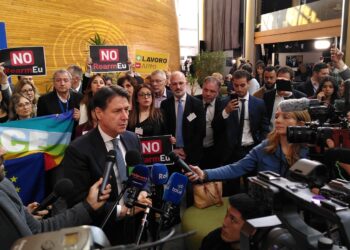Rome – The Democratic Party hangs in, while the 5 Stars Movement improved its figures: this is the big picture offered today by the surveys published today by the main Italian newspapers, two weeks ahead of the administrative election to take place on June 5, which represent sort of a “preliminary match” for Matteo Renzi, waiting for the most important challenge – the constitutional referendum to be held in October in which he’d chosen to put his political career at stake.
A first due premise: pollsters are all quite cautious in suggesting everyone to be careful when analysing the surveys. Still, the PM/Secretary party seems to hold on, even though it has to resist a remarkable advance by the 5 Stars Movement, which is expected to win in Rome with its candidate Virginia Raggi.
The second premise concerns the party: the Pd doesn’t appear to be very confident in a positive result – even its undersecretary, Luca Lotti, one of Renzi’s most appreciated advisors, who has the pulse of the situation on the field, wanted to highlight that the outcome of this election won’t be so important. Still, 1,300 municipalities are involved in the election to take place on June 5, including some of the most populous cities – hence some of the most important ones from the electoral point of view – in Italy.
In Rome, the 5SM candidate is expected to win with a clear majority over the other candidates. This advantage would be maintained, according to analysts, with any other candidate to get to the second ballot – Roberto Giachetti (Pd) has a light lead over Giorgia Meloni (Lega-Fdi) and a strong lead over the independent candidate, Alfio Marchini (supported by Forza Italia). The candidate for the “Tsipras-ian” left, Stefano Fassina, comes fifth with a 8% consensus which would be very useful for Giachetti, supported by Renzi, for being sure of a second ballot against Raggi.
In Milan, things seem a little bit easier for “the man of the Expo” chosen by Renzi, Giuseppe Sala, who’s going to fight against the centre-right coalition candidate, Stefano Parisi: a neck and neck election in which Sala would have a slight lead on his competitor.
In Naples, things got gloomy for the Pd. The outgoing mayor, Luigi De Magistris, independent representative of the left, is likely to be reconfirmed – it’d be difficult for him to be re-elected immediately, but the second ballot would give him a sure lead on the candidate chosen by the PM, Valeria Valente (her election over Antonio Bassolino at the primary election was touched by accusation of vote rigging), who’s even running behind other candidates of the M5S and center-right parties.
Torino and Bologna would be more pleasant for Renzi: both the outgoing mayors, Stefano Fassino and Virginio Merola respectively, should be reconfirmed in their posts. The latter should even be reconfirmed immediately, while Fassino is expected to win a the second ballot against the candidate of the 5 Stars Movement, Chiara Appendino.
Still, a poll by Cise – Sole 24 Ore gives aggregated data at national level: the Pd is still the first party in Italy with 32.9% of voters (far from 40.8% obtained at the 2014 the European election), followed by the 5 Stars Movement with 30.8% of votes, while Lega and Forza Italia have both 11.8% of votes. Fratelli d’Italia has slightly more than 3% of votes – the current threshold of the electoral law.
Il Sole 24 Ore appointed Cise to survey the attitude towards the constitutional referendum as well: the picture is not very reassuring for Renzi here. Those saying they are going to the polls is remarkable – 83% of the interviewed subjects – but only 44% is going to approve the reform supported by the PM. Still, Renzi can count on 27% of interviewed subjects who said they are floating voter or abstentionist to get to the threshold of 50% of votes needed by the referendum.













